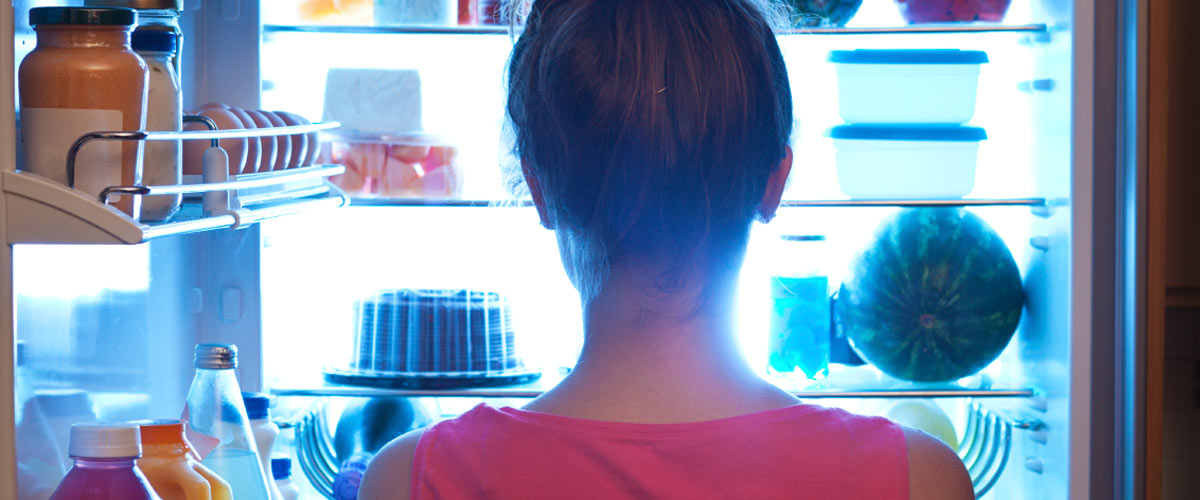Too many of us know from experience that late night cravings can often get the best of us. The problem is, it’s not just what we eat, it’s also when we eat it that counts.
“For years, we said a calorie is a calorie no matter when you consume it,” dietitian Joy Dubost recently told The Washington Post. “I don’t know if we can say that anymore, based on the emerging research. The timing of a meal may potentially have an impact.”
When you consume food close to your regular sleep schedule, after dinnertime, the body converts those calories into fat causing a person to gain weight. The foods you choose to eat at those times will have an effect on your body too. “Eating foods high in sugar, carbs and fat can affect sugar/glucose levels,” says Jean Rafferty, Licensed Clinical Social Worker specializing in eating disorders. “Apart from weight gain, consuming these foods can give you an increase and/or crash in sugar levels, sugar addiction and sugar withdrawal symptoms like headaches.”
 Rafferty’s pics for what foods we should be avoiding before going to bed make sense when you think about it:
Rafferty’s pics for what foods we should be avoiding before going to bed make sense when you think about it:
1. Stay away from high dairy items such as ice creams and yogurts.
2. Maintain a low carb intake of breads and anything containing grains.
3. Avoid foods high in fat like chips or fried food.
4. Stop consuming sugary foods like sweets, chocolate & even alcoholic beverages.
But beyond the obvious bad foods that we know, overeating anything at night time can be bad for you, so it’s a delicate dance. “Over indulging even on healthy foods, can be bad for you,” says Rafferty. “Food eaten before bed will be stored vs being used for fuel and burned during the waking hours. Late night stress eating also lowers your metabolism and increases your cortisol levels, resulting in more stored belly fat.”
These rules apply to drinks consumed close to bed time as well. “Alcohol can impact sleep causing insomnia and even more cravings for processed food and sugar,” she says. “Then it can lead to dehydration and more weight gain.”
Some tips that might help you avoid the negative outcomes of late night eating are:
- Try not to eat 2 hours prior to bedtime
- Remove all unhealthy & processed foods from your kitchen to avoid snacking temptations.
- Do a stress assessment – what’s really eating you? Find ways to self soothe & calm the mind instead of eating late at night
- Keep your meals fairly small throughout the day, which help you decrease your hunger levels at night.




